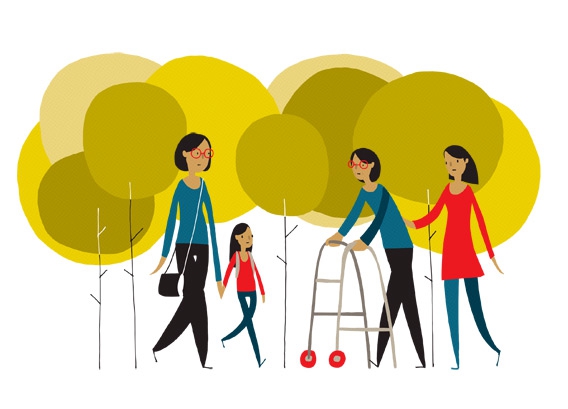Employees feel the government and employers should together ensure that the elderly are taken care of
Today, companies care more about their employees than in the past. Attracting and retaining talent has become more challenging in modern times. Companies are offering several perks and benefits to the employees, apart from their salary. Many companies are giving sick leave, paternity leave and even period leave to women employees. The objective behind these leaves is to show how much these organisations care about their employees. Besides, they become more productive with these benefits.
One emerging trend today is that employees want more support at work to help them manage care responsibilities for an elderly relative.
Simplyhealth surveyed 1,974 UK adults aged 18 and above, and found that 39 per cent of them desire more support at work to help them manage and care for elderly relatives. Around 50 per cent of the respondents believe employees who are caring for an elderly relative should receive more support to remain in the job.
They want companies to make carer policies and carer groups for such employees and recognise them as carers as well as employees.
65 per cent of the respondents feel that flexible work arrangements should be made available to employees caring for the elderly. Around 51 per cent feel that employees who are carers should be allowed to avail unpaid leave.
Around 44 per cent of the respondents say that employees caring for an elderly relative should receive support in the form of care credits, similar to the tax-free children credits received by parents. Also, 30 per cent of the respondents suggest giving care vouchers to carers.
38 per cent of the respondents are of the opinion that the employees who are carers should be provided counselling. Around 37 percent believe that carers struggling with work and care commitments should receive more support to be able to return to work. Employees caring for an elderly should be able to have additional paid days off work.
The survey found that 42 per cent of the respondents who work full or part-time, and have cared for their parents in the last three months, have taken more than a week off work in the last year.
Taking time off work is important to remain healthy and productive. The survey reveals that 57 per cent of the respondents who have caring responsibilities but have not taken any time off work in the last year say that this has affected their personal health and wellbeing.
Taking time off work to care for elders is difficult for employees in ‘blue collar’ industries. Around 47 per cent of the respondents say that such employees cannot afford to stop working or take unpaid time off work to care for elderly relatives.
Employees think that government and employers together can play a greater role in ensuring that the elderly are taken care of. 58 per cent of respondents believe that the government should play a role in this and 66 per cent believe employers should offer specific support for carers of elderly relatives with government support.
Value our content... contribute towards our growth. Even a small contribution a month would be of great help for us.
Since eight years, we have been serving the industry through daily news and stories. Our content is free for all and we plan to keep it that way.
Support HRKatha. Pay Here (All it takes is a minute)




































